8 dessert brands to satisfy your sweet cravings
SMBStory curates a list of doughnut, ice-cream, kulfi, and chocolate brands that are making their presence felt in India’s dessert market.
For those with a sweet tooth, the choices are no longer limited. Take your pick from doughnuts, craft chocolates, low-calorie ice-creams, and more. SMBStory curates a list of dessert brands making a name for themselves in the Indian market.
Doughnuts
Doughnuts came to India much later than pastries and cakes, but have become quite popular. Here are some brands offering a variety of doughnuts.
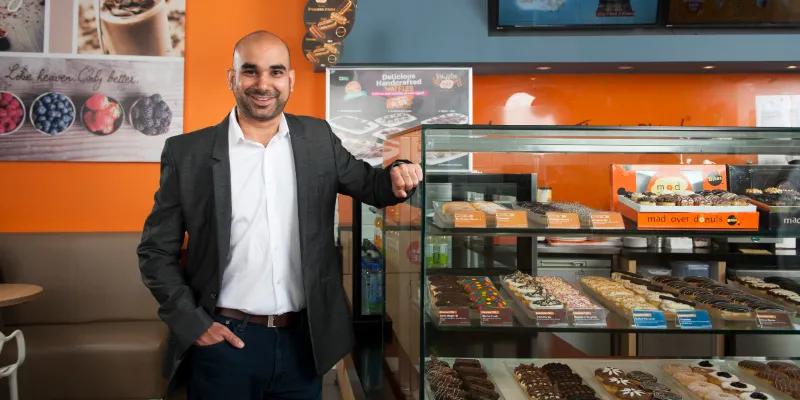
Lokesh Bharwani, Founder, Mad Over Donuts
Lokesh Bharwani launched Mad Over Donuts or MOD, as it is popularly known, in 2008 in India. The first outlet of the Singapore-based company opened in New Delhi.
From seven outlets the number went up to 30 in four-five years. Now it operates more than 60 stand-alone joints in cities such as Mumbai, Delhi, Bengaluru, Pune, and Chennai.
MOD’s market domination was briefly threatened by international doughnut brand Dunkin’ Donuts’ entry into India in 2012. However, MOD is now the top doughnut brand in the country.
Some of the popular items on its menu are Double Trouble, Rainbow Surprise, Dark Knight, and Choco Bomb. The doughnuts are priced in the range Rs 95-105.
MOD clocked a turnover of a little over Rs 60 crore in FY 20 and the business is profitable.
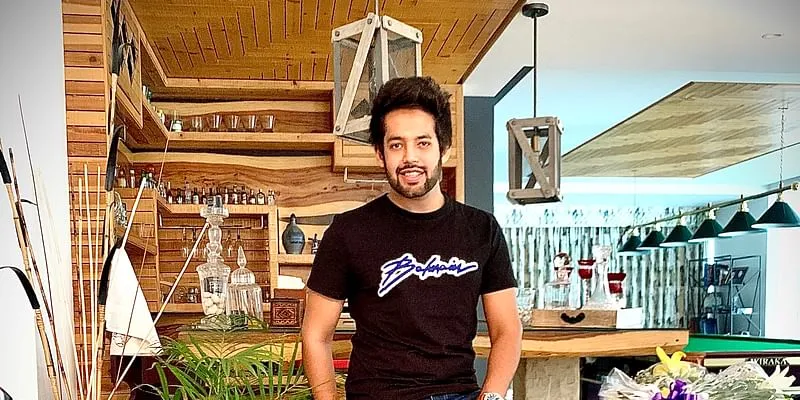
Ketan Kalra, CEO and Founder, Super Donuts
Founded in 2012 by then 20-something Ketan Kalra, Chandigarh-based Super Donuts offers 40 flavours, including gulab jamun and kaju katli, a special item available for Diwali.
Other varieties include Oreo Dust, Cookie Dough Monster, and Billion Dollar Ferrero. The doughnuts are priced between Rs 90 and Rs 130.
Super Donuts has taken the slow and steady road to establish itself. At present, it operates 14 stores in cities such as Chandigarh, Patiala, Dehradun, and Delhi. One more outlet is set to launch in Delhi and there are plans to open joints in Gujarat.
One can order Super Donuts’ items on foodtech platforms Zomato and Swiggy as well.
Ice cream
India’s ice cream market has a slew of homegrown brands such as Kwality Wall’s, Amul, and Mother Dairy, along with international ones such as Baskin Robbins and Haagen Dazs. Niche brands are also making their presence felt among consumers. Here are a few of them.

Siddhant Kamath, Director, Naturals Ice Cream
Naturals Ice Cream Founder Raghunandan Kamath hails from Mangaluru. The son of a fruit vendor, Raghunandan learnt to identify good fruits early on. After his eldest brother came to Mumbai and opened a cafe in Santa Cruz, he put Raghunandan in charge of its ice cream counter.
After getting married in 1983, Raghunandan decided to start something of his own and launched his venture a year later.
The Mumbai-based company, with brand name Naturals, was started with an investment of Rs 2 lakh. It clocked a turnover of Rs 165 crore in FY 20.
Naturals has a total of 129 outlets across Mumbai, Bengaluru, Hyderabad, Delhi, Ahmedabad, and other cities.
The brand specialises in ice creams made from fruits. Popular flavours are mango, tender coconut, chikoo, roasted almonds, and malai khurma.
Raghunandan’s sons, Srinivas Kamath and Siddhant Kamath, help him run the business.
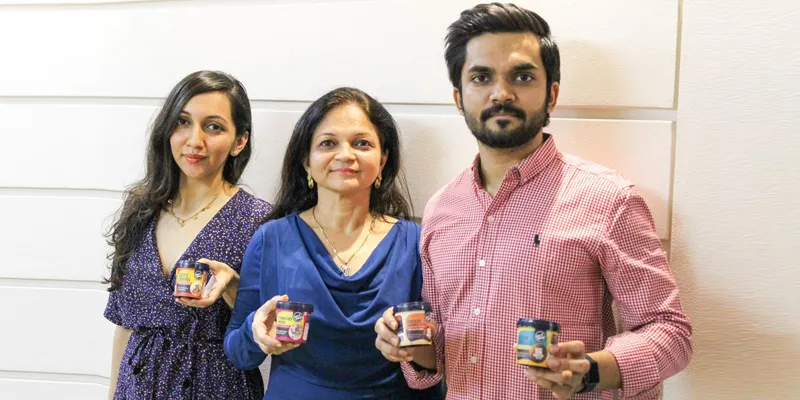
Pashmi Shah (L), Jimmy Shah (M) and Jash Shah (R), Co-founders of Get-A-Whey
Get-A-Whey is a premium brand manufacturing and selling protein ice creams. It is co-owned by siblings Jash and Pashmi Shah. At present, it has stores in Mumbai and Pune, and plans to open outlets in Delhi.
The brand was born out of Jash’s fondness for protein-rich food, says Pashmi. Whenever the siblings went abroad, Jash would buy different varieties of proteins. “He wanted to collect the best proteins from different countries.”
When Jash and Pashmi asked their mother, Jimmy Shah, for a healthy way of satiating their cravings, she came up with a whey protein ice cream. That’s how they got the idea to start Get-A-Whey.
With a basic logo, an investment of Rs 10 lakh from family members, and a team of three, the brand launched in Mumbai in 2018.
The ice creams are sold in 125 ml and 520 ml tubs that cost between Rs 125 and Rs 425. The brand offers a total of eight flavours, including Belgian Chocolate and Strawberry Banana, of which two — Keto Belgian Chocolate and Keto Very Berry — were rolled out for those following a keto diet.
The brand estimates its revenue will hit Rs 2.5 crore this fiscal year.

Ashni Sheth and Varun Sheth, Co-founders, NOTO
Varun Sheth discovered a love for cooking while working in his uncle’s diamond business in New York back in 2009. Eventually, he pursued a degree in culinary arts from Natural Gourmet Institute, New York, and worked in a Mario Batali restaurant before returning to India.
After working at the Taj Hotel in Mumbai for some time, Varun launched a catering business. In 2018, he faced some health issues, which compelled him to lose weight. But he couldn’t give up on sweets.
Varun saw this as a business opportunity and decided to venture into the healthy dessert category. This led to the birth of low-calorie ice cream brand NOTO in May 2019.
The brand claims that all its ice creams have less than 100 calories, compared to regular ones that contain between 140 and 200 calories in a 125 ml cup.
Apart from regular flavours such as vanilla, strawberry, chocolate, and mango, there are special ones including pink guava, dark chocolate, orange and almond.
NOTO claims to serve around 50,000 customers annually in Mumbai.
Chocolates
It is said that nine out of 10 people love chocolate, the tenth person always lies. The Indian chocolate industry is pegged to grow at a compound annual growth rate of 10 percent between 2019 and 2023, according to a report by Mintel. A survey by IIM-Lucknow shows about 42 percent of respondents living in Tier-I and Tier-II cities stocked up on chocolates during the lockdown.
So you can be sure this dessert will never fall out of favour. Here are some brands to choose from.
Kocoatrait
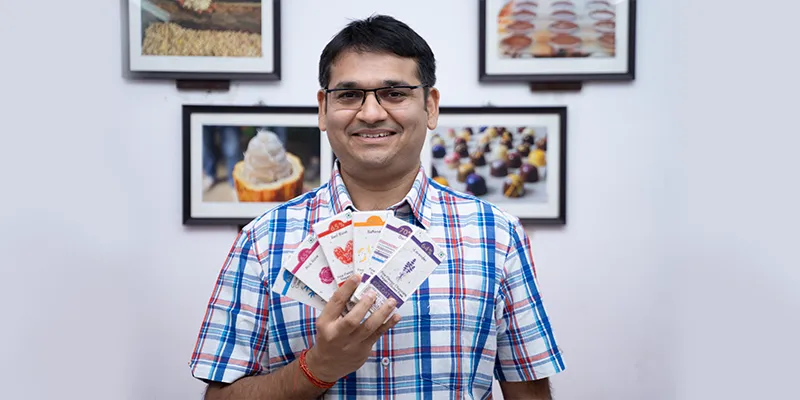
L Nitin Chordia, Founder and Chief Tasting Officer, Kocoatrait
Kocoatrait was founded in October 2019 by Chennai-based chocolatier L Nitin Chordia. In 2014, Nitin decided to quit his corporate job and explore the chocolate business. He went backpacking for 20 days to Belgium, known as the mecca of chocolates.
However, Nitin found “nothing special” about Belgian chocolates and saw enormous potential in India.
After acquiring knowledge, the next step was to set up operations. He began installing small equipment in a room given to him by his father, who ran an automobile business. Some equipment was bought; the other things Nitin developed himself.
The idea was to manufacture chocolates on a small scale. When the small manufacturing unit was in place, Nitin started making chocolates, a process that spans almost 36 hours.
The brand offers 12 varieties of chocolates priced in the range Rs 190-235. It has launched the Kocoatrait Madras Collection, offering nine flavours inspired by Tamil Nadu. This includes Sukku Malli Kaapi, Filter Coffee, Kozhukkattai, and Malligai. The Kocoatrait Spice Collection has nine Indian spice-based flavours, including White Chocolate Saffron, White Chocolate Green Chilli, and Curry Leaf & Coconut.
Nitin and his wife, Poonam Chordia, have also founded Cocoashala, an academy that imparts training in making chocolates.
The brand clocked Rs 18 lakh in turnover this year.
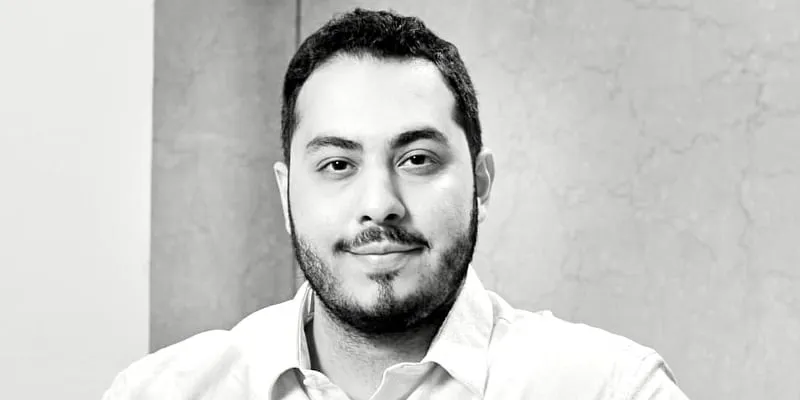
Shahzad Anklesaria, Co-founder and Managing Director, Ambriona Chocolates
Mumbai-based craft chocolate brand Ambriona Chocolates was set up with the aim of offering customers the authentic taste of chocolate minus the artificial ingredients.
Ambriona’s manufacturing unit is in Ratlam, Madhya Pradesh. There are more than 70 varieties of chocolates in its catalogue priced in the range Rs 165-300.
The brand retails mainly through ecommerce platforms, including Amazon, 1MG, and Qtrove, as well as its website.
The company has so far clocked a turnover of Rs 1.25 crore this fiscal year and plans to end with Rs 1.65 crore.
Kulfi
Kulfi is in some measure the Indian equivalent of ice cream. As kulfi is whipped it is denser than ice cream. Here’s one kulfi brand that’s making its mark.
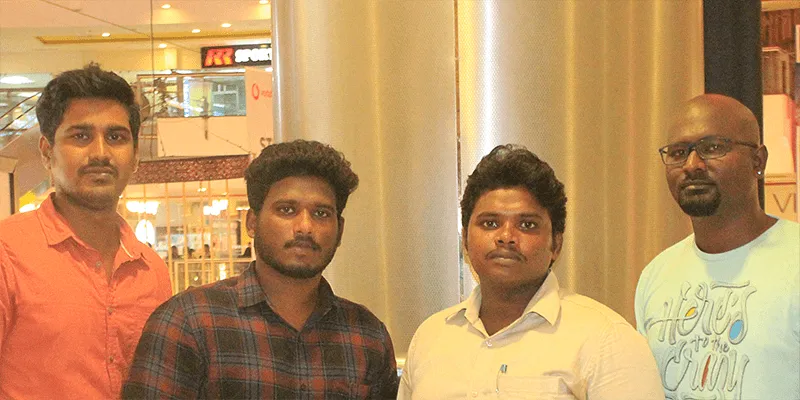
Naveen Kumar, Karthick Sukumaaran, Karthikeyan E, and Mitlesh Kumar, Co-founders of Boozo Kulfi
In 2017, four friends from Chennai wanted to launch a business together, but didn’t know which industry to venture into. Naveen Kumar, Karthick Sukumaaran, Karthikeyan E, and Mitlesh Kumar, studied engineering together and later worked in different sectors.
As they brainstormed, they noticed kulfis were becoming popular, with outlets cropping up in the city.
“People in Chennai loved kulfi and it wasn’t selling only because of the hot climate,” says Naveen. “We saw customers go out to eat kulfi even at nights and on rainy days. It sold well anytime and anywhere in Chennai.”
The friends approached the MSME department for advice and learnt about the government opportunities and schemes available for upcoming entrepreneurs.
“With this information, we each contributed Rs 10,000 and took up a small, 80-square foot space for manufacturing,” says Naveen. “Armed with technical know-how, we began making kulfi and selling it in public spaces such as parks and beaches.”
The company, registered as Green Castle Food and Beverages, started selling under the brand name Boozo Kulfi. The kulfis were a big hit. In just a year, the brand sold kulfis worth Rs 24 lakh.
Edited by Lena Saha










